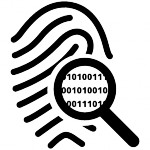
Become a Credit Guru

Want to Be a Credit Guru?
Credit and personal finance aren't some mysterious subject that only MBA's and financial consultants are able to comprehend. You can learn the basics of debt management, investing, credit improvement and all aspects of personal finance. Just sit back and allow us to fill your head with knowledge and information that will make you a true credit guru in no time.
10 Simple Tips to Prevent Identity Theft
 An unknown statement. A contact from a banking asking about unfamiliar charges. Being rejected for financing or an apartment as a result of red flags in your credit rating check. These are all signals your identity could have been stolen.
An unknown statement. A contact from a banking asking about unfamiliar charges. Being rejected for financing or an apartment as a result of red flags in your credit rating check. These are all signals your identity could have been stolen.
Types of identity theft comprise using purloined payment-card info to create a buy; getting manage of existing accounts with banks as well as online payments platforms like paypal.com; and opening new accounts with internet sites like eBay and Amazon, cellular telephone companies or utilities.
The No. 1 buyer complaint filed with the FTC for the previous 14 years, identity theft is on the rise. More than 13 million individuals were victims of identity theft in 2013, according to the most recent report from Pleasanton, California-based Javelin Strategy & Research. It is also enormous money for the robbers, with Javelin estimating $18 billion in identity theft-related losses in America for 2013.
Identity theft can occur to anyone there is no single-group that's more or less vulnerable to being victimized.
How identity theft happensYour identity could be stolen just because a shop's point of sale final was undermined, as occurred in the recent substantial Target data breach, or because someone cloned your credit card when you're paying a statement in a restaurant, or maybe because a malware infection on your own computer intercepted your fiscal details.
Your identity also can be stolen by non-electronic means. As an example, some one could fish a classic checkbook or credit card statement from your garbage.
Here are 10 suggestions that will enable you to shield your identity.
Do not use your Social Security Number as ID
Eighty percentage of the top-25 banks and 9-6 % of top credit card issuers will let you get your accounts with your Social Security number SSN instead of an account amount, according to Javelin. Tell your banking you'll never do this; that manner, your bank will understand anyone attempting to gain access to the account using the SSN is not you. Generally, do not indiscriminately hand over your SSN if it is requested for. Instead, ask why such advice is important, and if you have an alternate type of ID which can be utilized.
Fix your private data
If you keep your financial reports online, on a pc or on a cellular apparatus, ensure these records behind a strong password. Change passwords often on all accounts, and start two-aspect authentication wherever possible. Assess action frequently for just about any account that calls for cash, not only banking and charge cards. For instance, frequently assess statements from your own cell carrier to make certain extra devices or providers have not been added.
Treat every e-mail you get
In regards to a possible data breach, or warning about possible fraud, with disbelief. Do not actually click on a link or open an attachment in a data-breach-notification e-mail message.
Be sure that your computer and cellular devices
are running the most recent versions of the OS and software, along with up to date variations of antivirus software. Do not use Windows XP techniques for on-line shopping or bank, particularly not after April 8, 2014 when Microsoft formally stops support for the OS. Consider utilizing super-safe "case-hardened" browsers or digital software when obtaining sensitive accounts.
Secure Your Trash Cans
Professional identity thieves realize that rubbish cans and business dumpsters are loaded troves of fiscal records, including canceled checks and credit card and bank statements. Do not toss out your id with the garbage instead, shred something delicate before you throw it away.
Consider a Credit Freeze
If your credit card firm provides an attentive service for questionable prices, go. Consider instituting a credit freeze with all the three leading credit reporting agencies to stop new accounts being opened in your title; you may do thus every 3 months. Consider investing in a realtime identity theft and credit monitoring support. It is also possible to consider this reference: https://www.identitytheftaid.org/best-identity-theft-protection-services/, which track a large number of black market sites and notify you if your information actually appears.
Watch Out for Fake IRS Scams
The government uses the traditional postal service-first. In the event you get a phone, text or e-mail claiming you owe back-taxes or exorbitant fines, it is probably counterfeit. Do not hand over your credit card number. Hang up rather, and call the Internal Revenue Service directly for those who have questions.
Use a Reputable Credit Monitoring Service
Credit monitoring services are set up to keep close tabs on your credit reports , and let you know if any suspicious activity is detected. They can't totally prevent identity theft from happening, nothing can, but they can give you an advantage in stopping the theft from becoming a major problem if it's detected early.
Lock your mailbox
Every day, numerous bank statements and credit card invoices property in mail boxes. Passports and Social Security cards can also be sent through the post. In case you've got an old style curb-side mail box, it is simple for anybody to steal your post. Buy locking mail box; many come having a slot in to which mail may be deposited, although some have keys it is possible to share with the mail provider.
Don't Overshare On Social Media Sites
Even a fast test of social media websites and search engines can show if a person is impersonating you. When you look for an issue, report it promptly. A rapid reply will decrease the quantity of harm you'll need to endure.
Take data-violation tellings seriously
One-third of the people that received information-breach notification letters became id-fraud casualties in 2013, in accordance with Javelin. Forty-six % of customers with endangered debit cards in 2013 became fraud casualties in exactly the same year, in comparison with only 16 % of buyers using a endangered SSN. In the event that you are given a data-breach notification letter which includes an offer for a free tracking service, benefit from it. Take each of the measures advocated in the notice, including changing passwords and tracking financial statements closely. Source: https://www.stopcreditfraud.org/credit-monitoring-service-reviews
Tags
The list of tags is empty.